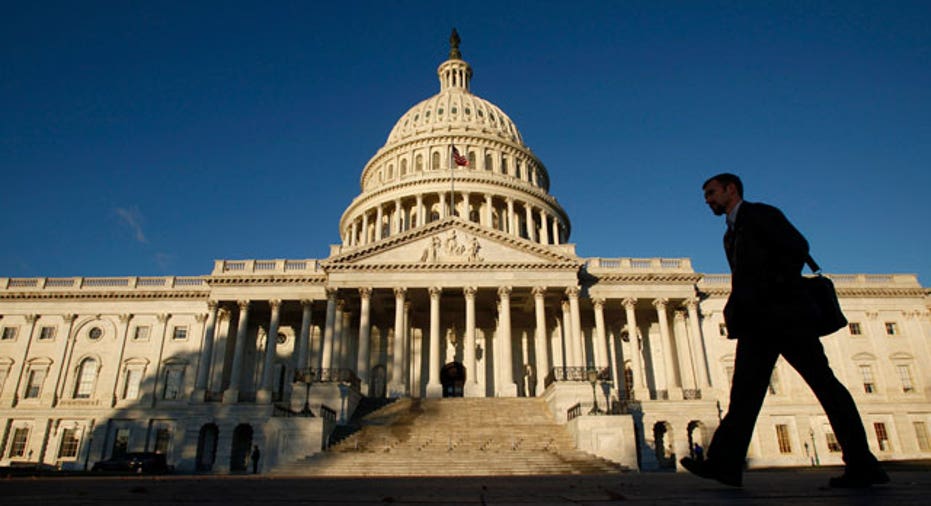U.S. Trade Pact Clears Hurdle

A U.S. congressional committee Wednesday strongly backed deals with South Korea, Colombia and Panama, setting them on course for expected final approval and ending a lengthy trade policy paralysis.
The three pacts are expected to boost U.S. exports by about $13 billion, which President Barack Obama's administration estimates will help create tens of thousands of jobs.
But congressional action follows years of delay during which the European Union, Canada and the three potential new U.S. free trade partners themselves have moved aggressively to strike new market-opening pacts.
The panel's chairman, Representative Dave Camp, said approval of the deals could not come at a better time.
``With zero jobs created last month and the unemployment rate hovering above nine percent, we must look at all opportunities to create American jobs. These agreements do just that,'' Camp said.
The three pacts must be approved by the full House and the Senate to become law. The panel backed the pacts on the following bipartisan votes: Colombia, 24-12; Panama, 32-3; and South Korea, 31-5.
Camp said he expected the full House to approve the trade deals as early as next week. Congressional leaders are still discussing the timing of Senate Finance Committee and full Senate action on the trade deals, he said.
The debate is taking place against concern in Congress about competition from China, which is propelling legislation in the Senate to crack down on Beijing's currency practices.
The deal with South Korea is the largest U.S. trade pact since the North American Free Trade Agreement went into force in 1994 and is expected to account for most of gains.
Obama submitted the pacts to Congress Monday, after a final assurance from House Republicans that a separate income and retraining income assistance program for displaced workers would be put for a vote alongside the trade pacts.
Obama has touted the trade deals as a vital part of his effort to revitalize the stagnant U.S. recovery and generate new jobs, considered crucial to his 2012 re-election chances.
Camp put potential job gains at 250,000, while detractors predict they will cause job losses through increased imports and more factories moving abroad.
The White House is also negotiating a new trade agreement with eight other countries in the fast-growing Asia-Pacific, which could be completed next year.
The pacts would be the first trade deals passed since late 2007, when Congress approved a pact with Peru.
They are the last of nearly a dozen agreements negotiated under President George W. Bush, a Republican.
They hit a brick wall after Democrats won control of the House in November 2006 and union groups objected to the pacts fearing they would shift jobs overseas.
OBAMA OPPOSED PACTS IN 2008 CAMPAIGN
The deals remained stuck throughout the 2008 presidential campaign, when both Obama and Hillary Clinton bashed trade agreements as they fought for the Democratic Party nomination.
Obama came to embrace the pacts after taking office and has worked over the past 15 months to address Democratic concerns over auto provisions of the South Korean pact, labor and violence concerns in Colombia and tax haven laws in Panama.
His efforts accelerated after Republicans won control of the House in the 2010 election and began pressing Obama to submit the trade deals for votes.
The pact with Colombia was signed in November 2006 and is still strongly opposed by U.S. labor groups, who complain that Colombia has not done enough to stop killings of labor leaders and prosecute those responsible.
The Obama administration this year negotiated a labor ''action plan'' with Colombia to address those concerns and strengthen the country's labor laws.
But many Democrats and the AFL-CIO labor federation still say the time is not right to approve the pact.
``There remain troubling problems with how Colombia is addressing key elements related to the Action Plan,'' said Representative Sander Levin, the top Democrat on the Ways and Means panel, who also criticized the White House for not including the plan in the implementing legislation for the Colombia agreement so it would have greater force.
The White House negotiated better auto terms with South Korea pact to win over Ford Motor Co and auto workers, who complained the deal failed to knock down longtime barriers in that market while opening the United States for more imports.
The Obama administration also negotiated a tax information exchange agreement with Panama to address concerns about investors using the country's bank secrecy laws to avoid paying U.S. taxes. (Editing by Mohammad Zargham and Cynthia Osterman)



















